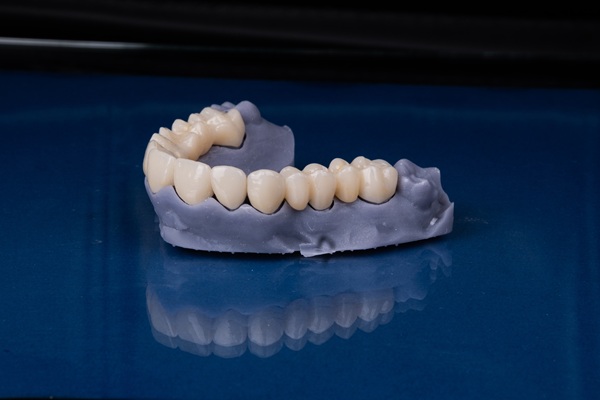3 Reasons Sleep Apnea Needs to Be Treated

Sleep apnea is a common sleep disorder estimated to affect around 20 million adults in the United States. Although the condition is common, there are still many undiagnosed cases. According to the American Academy of Sleep Medicine (AASM), up to 80 percent of people with sleep apnea do not go for a diagnosis.
Some people experience only mild symptoms of sleep apnea and therefore, do not see their symptoms as a sleep disorder. Many others do not understand the severe implications of untreated sleep apnea. Interestingly, sleep apnea is easy to treat using therapies such as Continuous Positive Airway Pressure (CPAP).
Why Sleep Apnea Needs to Be Treated
The following are reasons patients should visit the dentist for sleep apnea treatment:
Poor Sleep Quality
Sleep apnea does not only cause irritating snoring sounds, but it also affects the quality of the person’s sleep. During an episode of sleep apnea, the collapsed tissues in the upper respiratory tract prevent oxygen from reaching the lungs. This triggers the brain to stir out of a certain stage of sleep to send signals to the respiratory muscles to try harder to open up the airways. This could happen several times in an hour.
As the brain gets stirred to sustain breathing, it is not sleeping well enough. The time the brain spends resting is required to initiate body repairs, save memories, and enhance cognitive functions. The distractions prevent the brain from finishing its work in the night, which is why many sleep apnea patients struggle to stay attentive during the day.
When patients get sleep apnea treatment, the brain will be able to perform its functions properly without interruptions. When it functions optimally, the body and mind will get required rest to keep the person awake and alert the following day.
Implications on long-term health
Several studies published by the AASM show the association between untreated sleep apnea and an array of illnesses and medical problems. Such health problems include:
- Heart disease
- Heart arrhythmias
- Heart failure
- Increased blood pressure
- Diabetes
- Stroke
- Cancer
Treating sleep apnea lowers blood pressure and reduces the chances of cardiovascular problems such as arrhythmias, heart failures, and heart disease.
Estimates from AASM also show that people with moderate to severe sleep apnea are more prone to death, stroke, death from cancer, and are more likely to develop cancer. Sleep apnea does not affect sleep only; it affects a person’s health and life.
Morning headaches
Sleep apnea often causes morning headaches. When breathing stops, the carbon dioxide levels in the blood increases, and oxygen levels drop. This causes the blood vessels to dilate. Dilation of the blood vessels located in the head causes vascular headaches. The headache typically disappears soon after waking up, but treating sleep apnea will ensure the person never has to deal with the headaches.
Final note
The harmful effects of untreated sleep apnea are many, and should not be taken lightly. If you detect any sign of sleep apnea or feel you are not sleeping well enough, visit the dentist for sleep evaluation, diagnosis, and treatment.
Request an appointment here: https://whiteflintfamilydental.com or call White Flint Family Dental at (301) 273-1085 for an appointment in our Rockville office.
Check out what others are saying about our services on Yelp: Read our Yelp reviews.
Recent Posts
A full mouth reconstruction restores oral health, functionality, and aesthetics for patients with extensive dental issues. This process combines multiple restorative, cosmetic, and sometimes surgical procedures to address concerns such as missing teeth, decay, gum disease, or bite misalignment. No matter the issue, a full mouth reconstruction is tailored to the individual's unique needs, offering…
The teenage years can be awkward, especially for those who have to deal with crooked teeth. Invisalign® presents an alternative to traditional braces, and these clear aligners can have the same corrective impact with less discomfort both physically and socially for a self-conscious teen. The benefits of clear aligners and the ability to correct an…
If your son or daughter is concerned about crooked teeth or a bad bite, you may want to consider Invisalign® for teens. This is an alternative to metal or ceramic braces, and it has numerous benefits, especially for those who are self-conscious about how they look. There are various reasons why Invisalign may be the…
Visiting a new dental office can be a daunting experience, especially for those unsure of what to expect during their first appointment. Whether you seek general, cosmetic, or pediatric dental care, understanding what happens during a first visit can help reduce anxiety and ensure a smooth experience. A dental office visit typically includes an initial…


